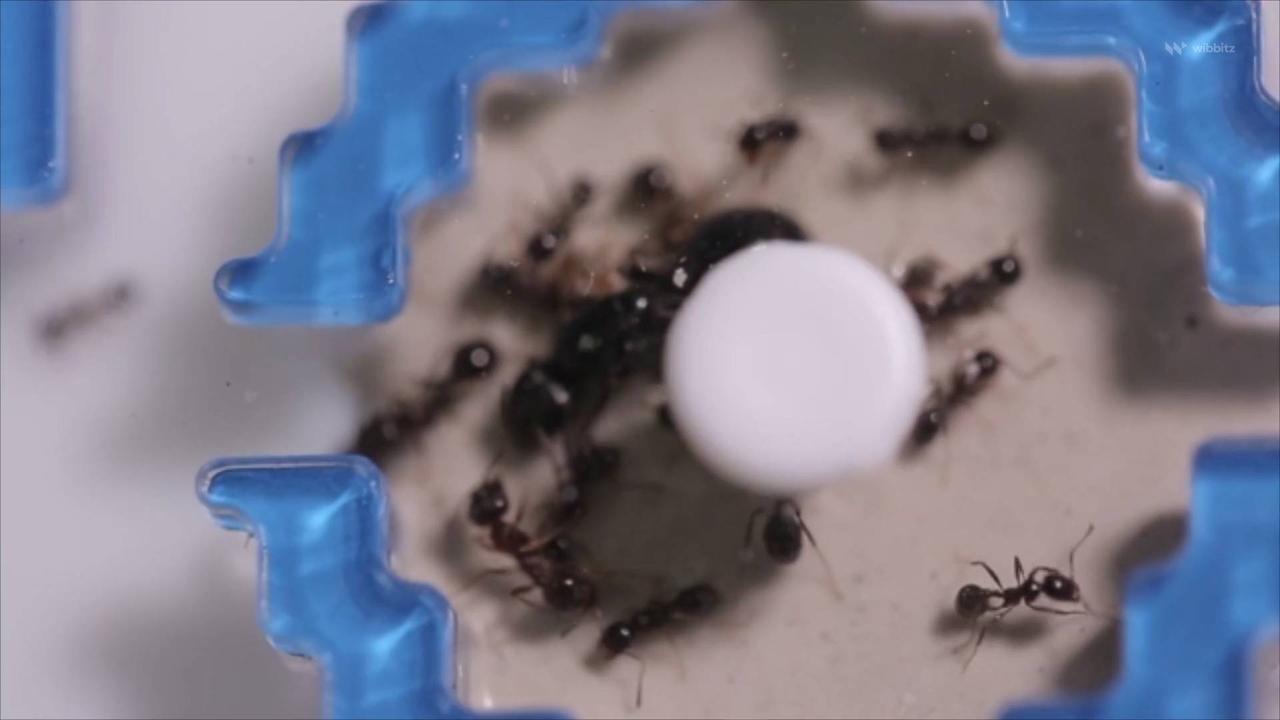Synchronistic Activity Is Another Superpower Possessed by Ants, Biologists Say

Synchronistic Activity Is Another Superpower Possessed by Ants, Biologists Say
Synchronistic Activity , Is Another Superpower , Possessed by Ants, Biologists Say.
'Newsweek' reports that scientists have discovered another incredible skill possessed by ants that allows them to avoid traffic jams. Biologists at Texas Tech University and other institutions found that the clever synchronization skills of Leptothorax ants help them to avoid congestion.
The team's findings were published in the 'Proceedings of the Royal Society.'.
The biologists determined that it is the ants' sudden activity, performed simultaneously, that allows them to avoid any potential traffic jams. The study found that synchronization plays a role in the way ants collectively transport prey and their , "consensus-decision making when choosing a nest.".
'Newsweek' reports that while scientists have long observed these synchronistic behaviors in ants, several species' "collective activity rhythm" remains a mystery.
.
Overall, the team found that bursts of activity resulted in better spatial accessibility inside the nest.
.
Inactive ants behave as immobile obstacles that constrain the potential locations where active ants can walk.
, Texas Tech University study, via 'Newsweek'.
The synchronization of worker activity thereby makes it possible for ants to be active in more regions of the nest as more ants become active.
, Texas Tech University study, via 'Newsweek'.
'Newsweek' reports that the latest study expanded scientists' understanding of the synchronized biological rhythms that social animals employ.
